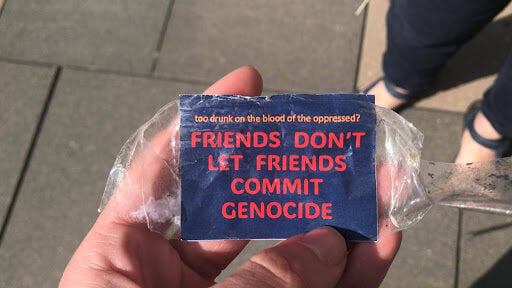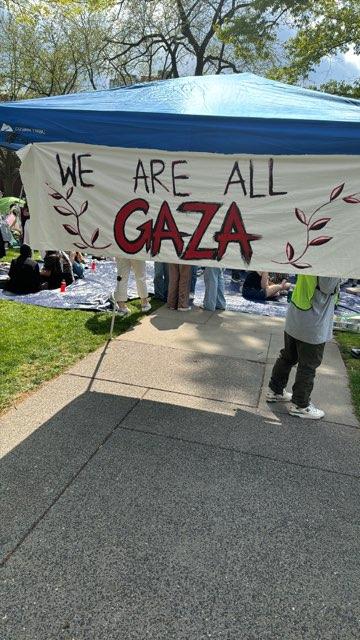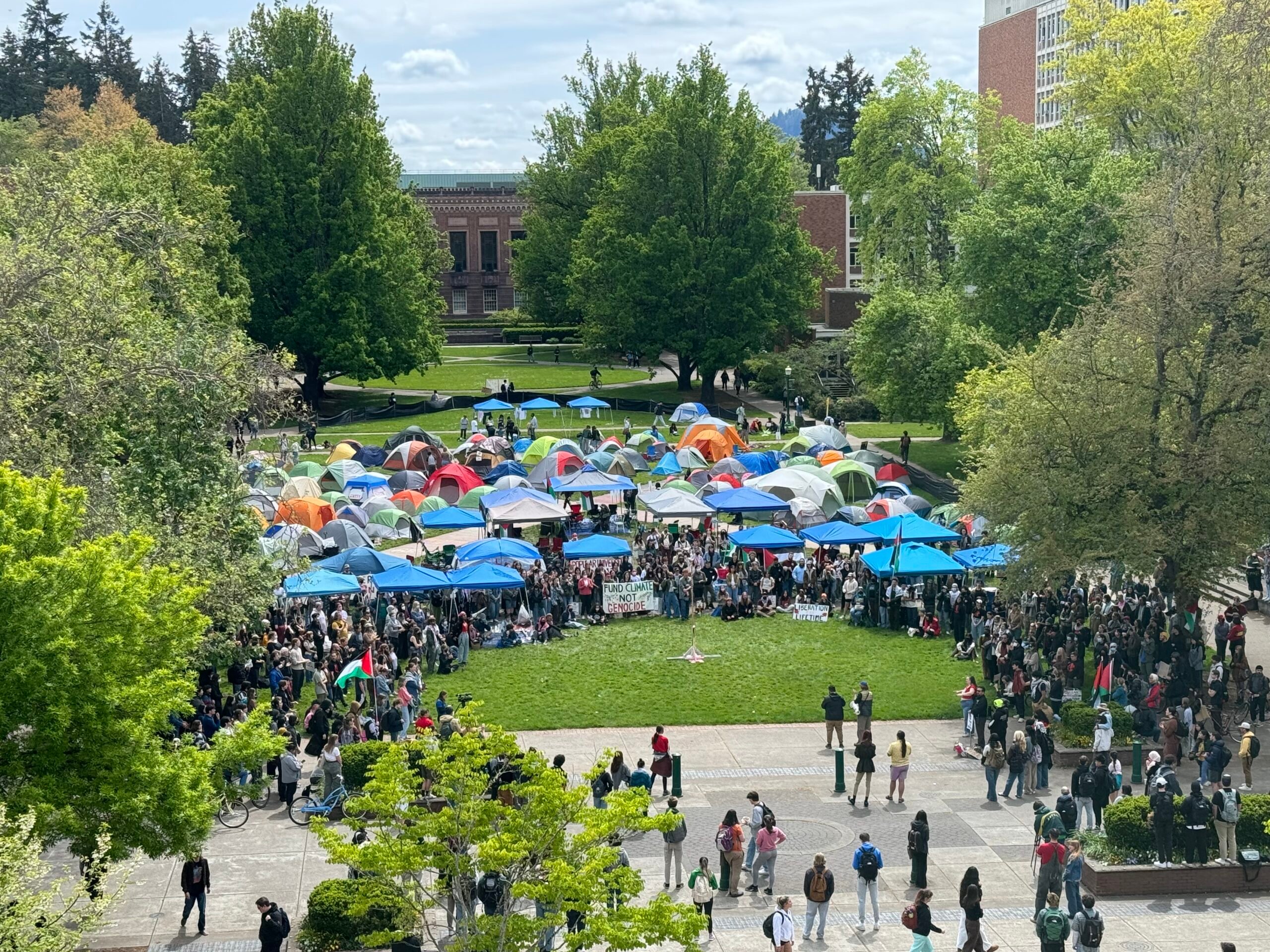
As Europe votes on a groundbreaking directive to help facilitate the return of stolen cultural treasures, the United States moves forward with legislation that would prevent claimants from recovering their rightful property—all in the name of museums.
We Americans enjoy some of the world’s finest museums, showcasing treasures from the ancient to contemporary. But with this privilege comes responsibility. This is owed to the masterpieces themselves, their previous custodians, and the individuals and civilizations that created them. These duties may seem one and the same and indeed they often are. Yet the right of museums to possess and display art, and the public’s to view it, increasingly clashes with the rights of those who may actually be its moral and legal owners.
Like so many conflicts, these rights are not decided by those most affected, whether they are the victims of Nazi looting or the trafficking of stolen antiquities and indigenous sacred artifacts. Instead, the fate of plundered cultural patrimony is now in the hands of U.S. lawyers and lawmakers and the interest groups that control them.
As is often the case, the loudest voices are currently coming from a hardcore minority of people with the most vested interest in the outcome of this debate. Needless to say, this does not represent the larger community of museum professionals and cultural experts, let alone the general public. But if you want to keep American museums free of loot, including that taken from the UK and Europe, this issue concerns you. And you should speak up.
The bill in question
On March 25, backed by the art trade lobby, Republican Congressman Steve Chabot reintroduced the Foreign Cultural Exchange Jurisdictional Immunity Clarification Act to the House of Representatives. On its face, HR 4292 asks Congress to “clarify” a small section of the law. But in truth, the bill goes far beyond mere clarification. It would instead undo established U.S. law and policy by allowing American cultural institutions to block legal claims to artwork on loan from abroad. Museums would knowingly be able to exhibit stolen and looted art and antiquities. It would leave the rightful owners without any legal recourse to recover their property in U.S. courts.
This bill is just the latest attempt by the less responsible players in the art market to weaken U.S. law. American legal principles have long held that a thief cannot transfer good title. The receipt, possession and transport of stolen property are crimes. U.S. legislation has carved out a narrow exception to prevent the judicial seizure of art imported for exhibition, but only in very limited circumstances, which it clearly enumerates. HR 4292 would greatly expand this exception by divesting our courts of all jurisdiction over such objects.
The bill’s stated—and it must be said commendable—purpose is to encourage cultural exchange. (That its supporters hope Russia to be the main partner for such exchange is a story for another day.) But at what cost? Who can enjoy viewing an Egon Schiele on loan to a museum, knowing the Third Reich sent its previous owners to their deaths at concentration camp? Or an ancient Cambodian statue, knowing it was plundered during the country’s bloody civil war, perhaps even to fund the genocidal Khmer Rouge?
Even without HR 4292, claimants already face huge legal hurdles in U.S. courts, despite clear evidence of theft or looting. For example, Cambodia had to fight for three years to recover a 1,000-year-old masterpiece from Sotheby’s, even though the feet of the figure were still in situ at an ancient temple complex. The case would have likely gone on much longer had the auction house not settled.
And the legal battle over Schiele’s Portrait of Wally—seized by a Nazi art collector from a Jewish art dealer fleeing Austria—raged for over a decade. That too ended only because a settlement was made. The vast majority of claims are never decided on their merits, but on procedural issues like statutes of limitation.
At the Washington Conference on Holocaust-Era Assets in 1998, 44 governments agreed to encourage claims from pre-World War II owners and heirs of Nazi-looted artwork in the interest of justice. The U.S. was party to these principles, and yet, HR 4292 goes against everything they represent. The bill would in effect make American museums a haven for pieces of illicit art. All lenders need to do is jump through a single necessary hoop, undermining our nation’s time-honored tradition of property rights and cultural-heritage preservation as they go. Those who support this bill in the name of “culture” are misrepresenting it and the greater interests of most cultural institutions in the U.S.
In the absence of a Ministry of Culture, our government has never clearly defined its own cultural policy. But it’s one thing not to have a Ministry of Culture and quite another to let the market run roughshod over established legal principles.
In contrast, just this week, the European Parliament approved Directive IP/14/430, which makes it much easier for member states to recover “national treasures of artistic, historic or archaeological value” from other countries in the European Union. When compared with its predecessor, this broadens the range of protected cultural objects and triples the time in which a nation can make a claim. If it passes a few more stages, it could be national law within 18 months. If only Chabot and HR 4292’s other sponsors would learn from Europe’s example and support victims of plunder in seeking restitution. As it is, instead of promoting cultural exchange, they risk aiding and abetting its very destruction.
DISCLOSURE STATEMENT
Tess Davis is working with Cambodia to combat the illicit trade in the kingdom’s antiquities, and formerly served as executive director of the Lawyers’ Committee for Cultural Heritage Preservation in Washington, DC. The Conversation is funded by the following universities: Aberdeen, Birmingham, Bradford, Bristol, Cardiff, City, Durham, Glasgow Caledonian, Goldsmiths, Lancaster, Leeds, Liverpool, Nottingham, The Open University, Queen›s University Belfast, Salford, Sheffield, Surrey, UCL and Warwick. It also receives funding from: Hefce, Hefcw, SAGE, SFC, RCUK, The Nuffield Foundation, The Wellcome Trust, Esmée Fairbairn Foundation and The Alliance for Useful Evidence.
Tess Davis is Affiliate Researcher in the Scottish Centre for Crime and Justice Research at University of Glasgow. This piece is written in collaboration with Marc Masurovsky, co-founder of the Holocaust Art Restitution Project (HARP). He has researched the question of assets looted during the Holocaust and World War II since 1980 and is the co-author of the 2006 book Le Festin du Reich.
By Tess Davis/Theconversation.com












